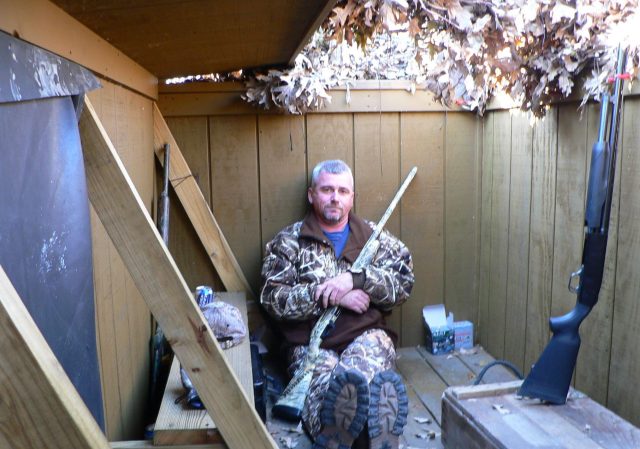
The ruling now means the lingering question as to whether American federal law recognizes the concept of aerial trespass will have to wait for another day.
Last year, drone pilot David Boggs sued Merideth in federal court in Louisville, asking the court to make a legal determination as to whether Boggs’ drone’s July 2015 flight constituted trespassing.
In the case, Boggs’ lawyers believed that because Merideth’s destruction of the drone was unwarranted, therefore Merideth should pay damages of $1,500 to repair or replace the drone.
In a Tuesday opinion, Senior US District Judge Thomas B. Russell ruled in favor of Merideth’s motion to dismiss, finding that federal court is not the proper venue for this claim.Boggs’ lawyers had argued, essentially, that because his drone was flying in the air, which is regulated by the Federal Aviation Administration, that this incident was relevant to federal law. However, the FAA was not a party to the suit. And ultimately the judge didn’t buy it, indicating that state courts would be better suited to adjudicate this claim.
"But even if Boggs is correct that his unmanned aircraft is subject to federal regulation, as the Court noted above, the fact remains that the FAA has not sought to enforce any such regulations in this case," Judge Russell concluded. "Moreover, FAA regulations, at most, would constitute ancillary issues in this case, in which the heart of Boggs’ claim is one for damage to his unmanned aircraft under Kentucky state law."
Boggs’ attorney, James Mackler, could ask the judge to reconsider or appeal it up to the 6th US Circuit Court of Appeals.
"Our client is disappointed—we respect the judge’s ruling and have to have a conversation with our client about an appeal," he told Ars. "This remains an extraordinarily important issue for the commercial and hobby issue. We desperately need clarification from this issue and that has to come from the federal level. Drones are continuing to be shot down. There have been many incidents, this has to be an issue that is addressed, but we have not decided whether we are going to file our appeal."
A high bar
As the consumer drone age has taken flight, legal scholars have wondered about this exact situation. If a drone flies over private property, is it trespassing? The short answer is that American courts have not addressed the question adequately. The best caselaw on the issue dates back to 1946, long before inexpensive consumer drones were technically feasible. That year, the Supreme Court ruled in a case known as United States v. Causby that a farmer in North Carolina could assert property rights up to 83 feet in the air.
Ars spoke with two legal experts who found the judge’s conclusions in this case to be sound. Ryan Calo, a law professor at the University of Washington, said that he agreed with the judge’s opinion.
"To get into a federal forum you have to meet federal criteria, and I agree that they have not been met here," he told Ars.
Similarly, an aviation law expert in private practice in Washington, DC, E. Tazewell Ellett, e-mailed Ars that such a ruling was "not surprising."
"The court is essentially saying that at its heart, this is a claim for trespass under Kentucky state law that is best handled in state court rather than federal court, and we tend to agree," he wrote. "That being said, it is a bit disappointing not to have a decision on the broader issues on which Boggs sought a declaratory judgment. As you say, a federal court decision on those broader issues will likely have to wait until another case."
reader comments
276